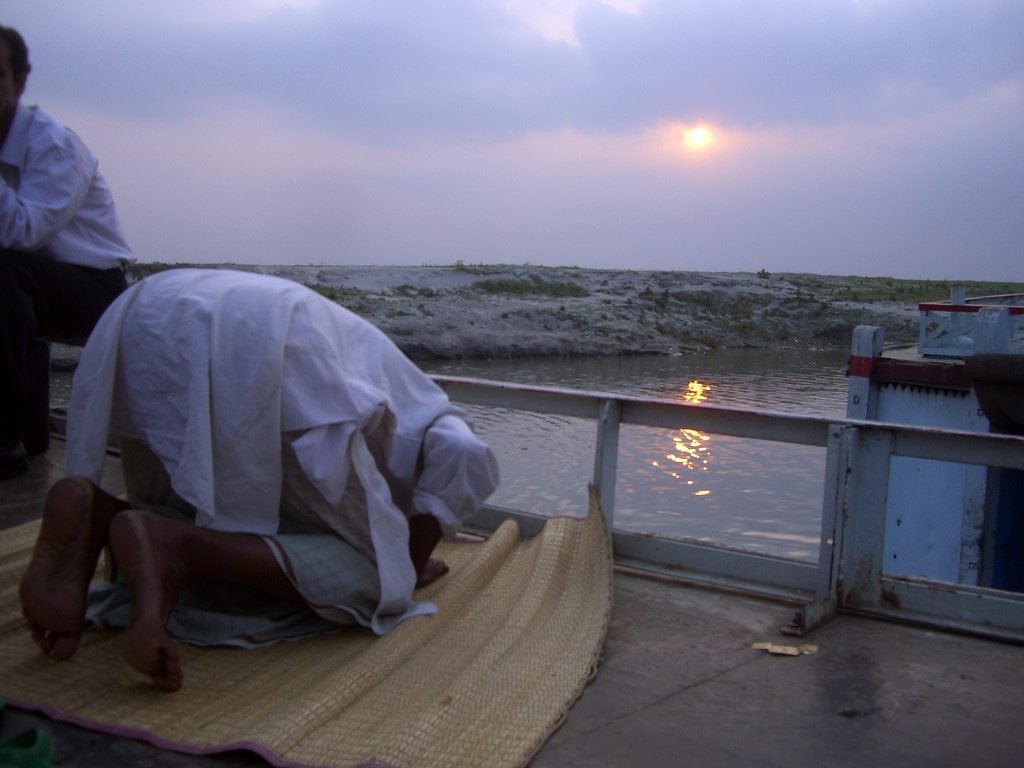Why the Traveler Can’t Shorten the Sunna Prayers as Well?
Hanafi Fiqh
Answered by Ustadh Salman Younas
Question: For many years, I have been confused by the idea of a traveller shortening the obligatory prayers, but then continuing to pray the sunnah prayers.
1. What is the wisdom in shortening the prayer for a traveler?
2. Why doesn’t that wisdom spill on to the sunna prayers, as well?
Answer: assalamu `alaykum
Sunna Prayers When Traveling
It is not completely accurate that one must always pray the sunna prayers when in a state of travel. Rather, alongside shortening the obligatory prayers, the scholars have stated that:
– when one is in a state of rest and non-travel then one should continue performing the confirmed sunna prayers, and
– when one is in a state of non-rest and travel then one can leave the confirmed sunna prayers with the exception, according to some, of the sunna of Fajr.
This is generally the chosen position in the Hanafi school. [Ibn `Abidin, Hashiya]
A Matter of Divergence
However, other scholars have disagreed with this position for the very reasons you mention: it makes little sense to shorten the obligatory prayers as a dispensation but continue praying all the sunna prayers, since one might as well pray the obligatory in full. This position is justified by scholars through the tradition of Ibn `Umar who disproved of people praying their sunna prayers when travelers for the same reason mentioned above and because he did not witness the Prophet (God bless him) performing them. [Ibn al-Qayyim, Zad al-Ma`ad]
A number of other scholars, perhaps a majority, stated that it would merely be recommended to perform sunna prayers while traveling – whether those connected to the prayer or otherwise. [al-Nawawi, al-Majmu`]
Leaving aside some of the finer details of these latter positions, the Hanafi view is based on a fundamentally different understanding than some of the other schools. This view does not consider the obligatory prayers of a traveler to be a “shortened” form of the obligatory prayers of a resident. Rather, the Hanafi view is that God initially legislated prayer as two cycles, as narrated by Ibn Abbas and others. This was then increased to four cycles for obligatory prayers in a state of non-travel but the original rule of two cycles was maintained for the traveler. In other words, the prayer of the traveler is not a real dispensation i.e. it is not God legislating the “shortening” of the obligatory prayer, and it is for this reason that people are obligated to pray two as travelers (as opposed to other schools that provide a choice).
The Basis of the Hanafi Position
In light of this, although there is an element of outward ease and flexibility in the travelers prayers, the Hanafis actually view it simply as a maintaining of the original prayer that God legislated and later expanded for the resident. Consequently, looking at the issue from the perspective of ease and dispensation is not entirely accurate. Thus, the question you posed about sunna prayers and where it falls into the equation would only apply if we first accept the premise that the travelers prayer is a dispensation to facilitate ease. [al-Kasani, Bada`i al-Sana`i; Ibn `Abidin, Hashiya]
I hope this sheds some light on the issue.
Salman
Checked & Approved by Shaykh Faraz Rabbani
